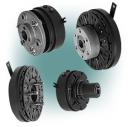Clutches – The Perfect Link
By Shenron on Aug 02, 2007 with Comments 0
A clutch links the engine to the transmission. It is important that your car’s clutch is properly mounted to avoid power loss and premature clutch wear. Basically, the clutch linking function lies in its capability to engaging or disengaging an engine to the transmission. When you push down the clutch lever, it disengages the engine allowing you to shift gears.
Race clutches are not quite practical for normal street driving. They are harder to disengaged and have less feel. Being caught in traffic in your racecar would require more than patience; you have to have strong legs, too. Race clutches will surely cause a strain on your left foot.
Race clutches are rated to match your engine’s power. If you mismatch the clutch to your engine, you might have a problem with the clutch slipping while you’re driving. Have you experienced revving up but you notice that you’re speed hasn’t increased at all? That’s clutch slip.
So if you have a limited space to run your race-powered car, a multi-disc clutch is best for you. Multi-disc clutches can hold large amount of power and have high clamping pressure. Multi-disc can give you a bit of street-friendly clutch handling, but still able to withstand repeated drag-style launches once you hit past 500hp.
A multi-disc clutch has more than one clutch discs with a floater plate coupled to the flywheel via drive lugs in the pressure plate in between the discs. Sometimes racecars use multi-disc clutches to make the clutch diameter smaller, reducing the rotational inertia of the clutch package.
Racing multi-disc clutches have some drawbacks. Because they are designed for racing, it is not quite suitable for street driving. It has solid hubs and no Marcel springs. Discs are normally made of metal, carbon, or ceramic, and among these three; only carbon has smooth engagement characteristics.
What makes it hard to create for smooth street-starts with race multi-disc clutches is that they have very light on and off engagement switches, which when combined with low inertia, makes it hard to get a smooth start.
It is normal to experience clutch judder when you are using race clutches. Metal discs usually have no Marcel springs and hub springs. Especially when you’re driving your car in street traffic, you might notice your car jerking real bad aside from the clutch judder. Don’t be concerned that people might think you don’t know how to drive. Race discs are just simply not for normal street use.
Filed Under: General
